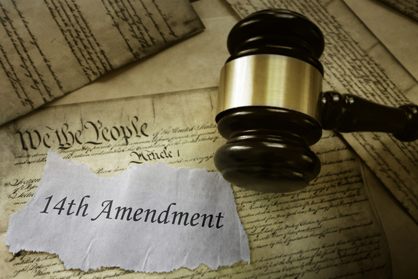
The State Bar of Wisconsin is currently entangled in a legal battle as it faces allegations that its diversity clerkship initiative for law students infringes upon the First Amendment rights of lawyer Daniel Suhr, who must pay mandatory dues. The lawsuit, filed by the Wisconsin Institute for Law & Liberty on Tuesday, contends that the program creates a discriminatory path to prestigious career opportunities with top employers in the state.
Alleged Violation of First Amendment Rights
Discrimination in Selection Criteria
According to the lawsuit filed in the U.S. District Court for the Eastern District of Wisconsin, the diversity clerkship program is accused of implementing eligibility requirements and selection processes that discriminate against students based on race. The plaintiff, Daniel Suhr, argues that this practice violates his First Amendment right to free speech, established in the 1990 U.S. Supreme Court decision, Keller v. State Bar of California.
Want to know if you’re earning what you deserve? Find out with LawCrossing’s salary surveys.
Freedom of Association Concerns
Suhr also asserts that the State Bar of Wisconsin is infringing on his First Amendment right to freedom of association by compelling him to be a member of an association engaged in unconstitutional activities. The mandatory nature of the program conflicts with the principles outlined in Keller v. State Bar of California, which limits the use of compulsory dues for actions related to the regulation of the legal profession.
Constitutional Precedents and Affirmative Action
Supreme Court Decisions
The lawsuit parallels the Supreme Court’s June decision, which struck down race-conscious college admissions programs at Harvard University and the University of North Carolina. In the cases known as Students for Fair Admissions v. University of North Carolina and Students for Fair Admissions v. President and Fellows of Harvard College, the Supreme Court held that such programs violated the 14th Amendment’s equal protection clause and Title VI of the Civil Rights Act.
Affirmative Action Challenge
Suhr’s suit argues that affirmative action in the context of student internships is just as unconstitutional as affirmative action in student admissions. The legal challenge suggests that the diversity clerkship program perpetuates discrimination, echoing the stance taken by the Supreme Court in the college, as mentioned above in admissions cases.
Bar’s Response and Continued Legal Battle
Reduced Dues Option
The State Bar of Wisconsin does offer reduced dues for attorneys who object to political or ideological activities. However, the lawsuit claims that the diversity program does not fall under the category of activities eligible for dues reduction, further complicating the constitutional concerns raised by Suhr.
Bar’s Defense
Larry Martin, the executive director of the State Bar of Wisconsin, has issued a statement expressing the bar’s commitment to “vigorously defend” the diversity program. Martin emphasizes that neither race nor ethnicity serves as eligibility criteria for participation, maintaining the program’s compliance with constitutional standards.
Don’t be a silent ninja! Let us know your thoughts in the comment section below.





































